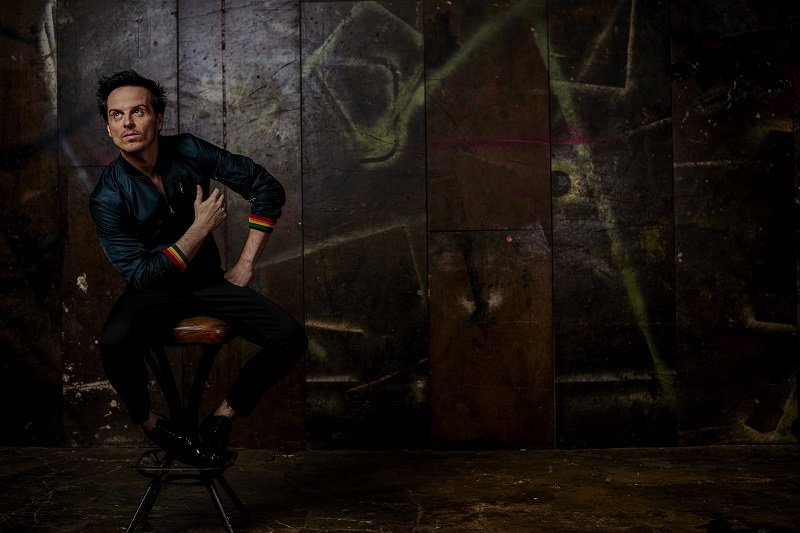Andrew Scott on Hamlet, Ireland’s transformation, and exploring his inner darkness
By Ross Semple

Andrew Scott’s career has gone from strength to strength in recent years. Since his spellbinding turn as Moriarty on the BBC’s Sherlock, Scott has starred in increasingly high-profile films like Pride, Spectre and Alice Through the Looking Glass. The 40-year-old is earning rave reviews for his portrayal of Hamlet in the West End production of the play at the Harold Pinter Theatre.
Appearing on the cover of the Summer 2017 issue of our sister publication Winq, Andrew discusses his electrifying take on Hamlet, Ireland’s extraordinary transformation, and exploring his own inner darkness.
Growing up in Catholic Ireland (Scott was raised in Dublin), Andrew grew up in an environment in which homosexuality was not accepted. “There was a priest in our school who said it was absolutely unnatural. I think he said it was disgusting, right in front of the class,” Andrew recalls, “and the class laughed. And I think at that age I knew that I was gay, yeah. I certainly wasn’t comfortable with it. And actually some people in the class I remember very clearly saying that was outrageous.”
Since that time, Ireland has undergone a cultural transformation in relation to attitudes around homosexuality, culminating in the legalisation of equal marriage following a 2015 referendum in which 62% of voters supported giving same-sex couples the right to marry.

Noting the changes that have happened in the decades since his youth, Andrew says: “It’s extraordinary. In 1993 I would have been 16 so it would have been illegal for me to hold my boyfriend’s hand. And now, genuinely, the fact that Ireland became the first country in the world to vote in gay marriage by popular vote, by referendum, that is absolutely extraordinary to me. And the day that result came out was probably the happiest day of my life. Because I’d done a little bit of campaigning for it and I think it’s a landmark in Irish history – there’s no doubt about it.”
Andrew remarks on how his choice of acting roles has changed as he’s grown older, as he’s less inclined to “play freaks all the time”. He says: “I think in my younger days I veered towards roles where you’re a bit of a gargoyle because I felt there was some part of me that needed to do that.” Now that he is more comfortable in himself, he is drawn more to romantic roles or something like Hamlet. “Just to know that you don’t always have to go towards the extreme; there’s drama in everybody’s lives and there’s drama in the quiet characters too,” he notes.
Even though he is broadening the scope of the roles he chooses, Andrew admits he has always enjoyed exploring the darker parts of his personality. “I was really shy as a kid. And obviously I was dealing with a lot of stuff and accepting who I really was, he says, “so I took great refuge in being subversive and being free. I feel really protective of that in my work. It’s been the most important thing, to be able to not sanitize myself in work and to do things that are bold and have a bit of flair.”
Elsewhere in the Summer issue of Winq, there are interviews with artist Grayson Perry – his first in the gay media – and Danny Watts, the most successful racing driver to come out as gay anywhere in the world. We travel to Thailand and Rotterdam, get the background on the horrific abuse in Chechnya, and ask if the pink pound can advance equality around the developing world. Melvyn Bragg recalls his friend Francis Bacon, Patrick Gale writes a letter to his younger self and Russell T Davies picks his cultural highlights. Packed with insightful commentary from a newly expanded panel of columnists, Winq is the journal for gay men by Attitude.
The Summer issue of Winq is out now. Buy in print, subscribe or download.

